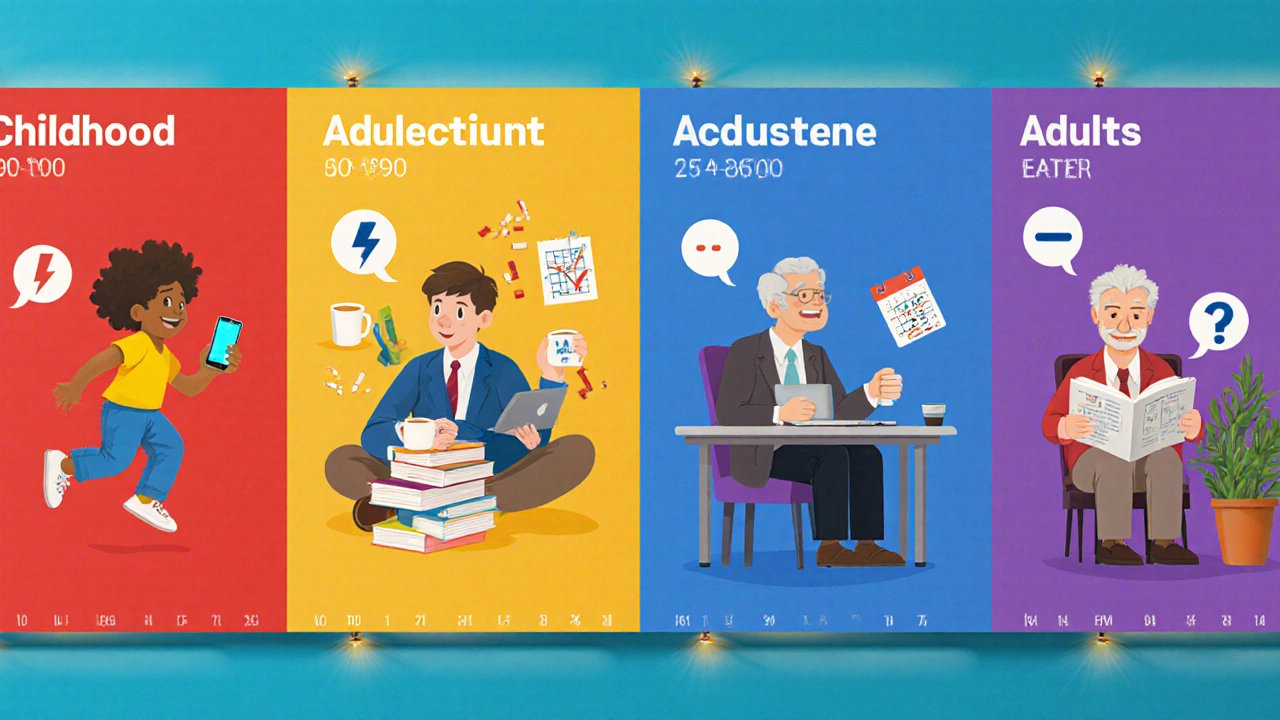Mental Health: Insights, Resources, and Practical Guidance
When exploring Mental Health, the state of our emotional, psychological, social, and cognitive well‑being, psychological wellness, we often encounter tools like Therapy, a structured process that helps people manage thoughts, feelings, and behaviors. Another common focus is ADHD, a neurodevelopmental condition that shapes attention and activity levels. Counseling offers a shorter, goal‑oriented approach that can complement deeper therapeutic work. Together, these concepts form a network that supports overall mental health.
Key Topics Covered
Mental Health encompasses emotional, psychological, social, and cognitive dimensions, each influencing how we cope with daily stress. Therapy requires a safe environment, a trained professional, and a willingness to explore inner patterns. ADHD influences mental health by creating challenges in focus and impulse control, which can lead to secondary issues like anxiety or low self‑esteem. Counseling, on the other hand, often targets specific life events, offering practical strategies without delving as deep into long‑term patterns. Understanding how these pieces fit together helps you choose the right support for your situation.
One major question many people face is what to share with a therapist. Boundaries matter because oversharing can overwhelm the session, while undersharing may limit progress. Legal and ethical guidelines shape what therapists can discuss, especially around crimes or self‑harm. Knowing these limits lets you prepare honest yet productive conversations, turning each session into a step forward rather than a guesswork exercise.
People also wonder how counseling differs from therapy. In simple terms, counseling tends to focus on a specific issue—career change, grief, or relationship stress—while therapy explores deeper patterns that may span years. Both rely on active listening and guided reflection, but therapy often involves longer‑term goal setting and may incorporate techniques like cognitive‑behavioral exercises. Recognizing this distinction helps you match your needs with the right professional.
Beyond conventional routes, there are surprising forces that can boost mental resilience. Mindfulness practices, community support groups, and creative outlets often work alongside therapy, sometimes delivering stronger shifts in mood and motivation. For those with ADHD, embracing neurodivergent strengths—such as hyperfocus on interests—can transform perceived weaknesses into assets. These alternative or complementary approaches broaden the toolkit for anyone seeking lasting well‑being.
Finally, it’s worth noting the most painful mental conditions, like severe depression or borderline personality disorder, which demand intensive, often multimodal treatment. Recognizing the intensity of these illnesses helps families and professionals tailor interventions that address both the mind and the environment. Awareness reduces stigma and encourages early help‑seeking, which can dramatically improve outcomes.
Below you’ll find a curated collection of articles that dive deeper into each of these areas—whether you’re looking for practical tips on therapy boundaries, a clear breakdown of counseling vs. therapy, or fresh perspectives on ADHD and neurodivergence. Browse the list to find the information that matches your current questions and start building a stronger mental health foundation today.

ADHD and Reduced Life Expectancy: Causes and Solutions
Explore why ADHD can reduce lifespan, the main health risks involved, and practical steps to protect your health and add years to your life.
read more
Does ADHD Get Worse With Age? Understanding Symptom Changes Over the Lifespan
Explore how ADHD symptoms evolve with age, why they may feel worse, and practical strategies for managing the condition from childhood through adulthood.
read more
What Can I Not Tell My Therapist? Honest Boundaries in Therapy
Ever wonder if there are things you shouldn’t share with your therapist? This article digs into what topics might really be off-limits—legally, ethically, or just for your own comfort. We sort out what happens if you talk about crimes, past trauma, or thoughts you find scary. You’ll also get tips on handling embarrassment and finding the right balance between honesty and self-protection. No clinical jargon—just real guidance for real sessions.
read more
Counseling vs Therapy: What’s the Real Difference?
Ever wondered if counseling and therapy are the same thing? This article breaks down how each helps you handle life's mental bumps. You'll find out when to choose one over the other and what actually happens in each kind of session. Plus, get practical tips on picking the right support and how to talk to your kids, friends, or even your dog about mental wellness. Spoiler: it's simpler than you think.
read more
What Is Stronger Than Therapy? Unexpected Forces That Move Us Forward
Therapy helps many people manage mental health struggles, but some things can work alongside it—or even outshine it in certain cases. This article digs into the surprising sources of strength that can have an even bigger impact on our well-being. You'll find practical tips, real examples, and some hard truths about what gives us staying power when therapy isn't the only answer. If you've ever wondered what can fuel true change, this one's for you. Maybe the solution isn't just talking on a couch.
read more
Most Excruciating Mental Illness: What Hurts the Mind the Most?
What’s the most unbearably painful mental illness? This article digs into conditions that cause the deepest mental suffering—how they feel, what makes them so tough, and how treatment can help. We’ll talk about diagnoses like severe depression, borderline personality disorder, and more. Get insights into what life is really like for those hit hardest, the science behind mental pain, and practical tips for coping or supporting someone in crisis.
read more
Are People with ADHD Neurodivergent?
The term 'neurodivergent' is becoming increasingly popular, especially in discussions about ADHD (Attention Deficit Hyperactivity Disorder). This article explores whether individuals with ADHD fall under the neurodivergent category, delving into the definition of neurodivergence and its implications. It also provides insights into understanding ADHD traits as a unique way of thinking and interacting with the world. Tips for managing ADHD and fostering acceptance and support in society are discussed.
read more
What's Higher Than Therapy? Exploring Alternatives and Enhancements
In the ever-evolving landscape of mental health, traditional therapy isn't the only path to personal growth and healing. This article delves into creative alternatives and enhancements to therapy that can be equally transformative. From mindfulness practices to community support, discover new ways to elevate your mental well-being.
read more
Can I Overshare with My Therapist? Understanding the Boundaries
Thinking about therapy makes you wonder if there's such a thing as revealing too much. Delving into therapist boundaries, this piece explores whether oversharing exists in therapy, highlights the importance of open communication, and offers insights into how to approach your sessions. If privacy or vulnerability holds you back, find clarity in discerning what your comfort zone requires. Know when honesty helps and when it might overwhelm your path to healing.
read more
Understanding the Seven Types of Mental Disorders
Mental health is a crucial component of overall well-being, and understanding its complexities can help in managing our mental state better. This article delves into the seven types of mental disorders, providing insight into their characteristics and the impact they have on individuals. By breaking down these classifications, the article aims to foster awareness and understanding, aiding in early recognition and therapy. It also offers practical tips for navigating life with or around these disorders, promoting a supportive environment for those affected.
read more
Understanding Therapist Diagnoses in Mental Health
Can therapists diagnose mental health disorders? This question often arises as people seek help for mental health issues. The article explores the abilities and limitations of therapists in diagnosing mental health conditions, the importance of correct diagnoses for effective treatment, and tips for patients when discussing diagnoses with their therapists. It also highlights the differences between therapists and psychiatrists, aiming to provide clarity for those navigating mental health services.
read more
Understanding the 4 Types of Mental Health: A Complete Guide
Mental health is a broad and intricate topic that deeply influences an individual's daily life and interactions. Understanding the four types of mental health — emotional, psychological, social, and cognitive — helps in managing wellness effectively. Each type provides unique insights and requires different strategies for improvement and maintenance. By exploring these aspects, individuals can learn how to nurture their overall mental well-being. This guide provides practical insights and useful tips for navigating the different facets of mental health.
read more



